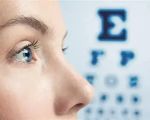- 1. What Is Vision Therapy?
- 2. Why Should You Consider Vision Therapy?
- 3. How to Find Vision Therapy Clinics Near Me
- 4. How to Evaluate a Vision Therapy Clinic
- 5. Vision Therapy Options and Services
1. What Is Vision Therapy?
Vision therapy is a type of treatment designed to improve or correct specific visual problems that cannot be fixed by regular glasses or contact lenses. It involves a series of exercises and activities that aim to strengthen the muscles around the eyes, improve eye coordination, and enhance the brain’s ability to process visual information.
Common visual conditions treated with vision therapy include eye teaming problems (such as convergence insufficiency), lazy eye (amblyopia), strabismus (crossed eyes), and visual tracking issues. Unlike traditional eye exams, which focus primarily on the clarity of your vision, vision therapy addresses the functional aspect of your eyesight, helping you see better in a variety of situations.
2. Why Should You Consider Vision Therapy?
If you’ve been experiencing frequent headaches, difficulty reading, or blurry vision, especially when focusing on tasks that require intense eye coordination, vision therapy may be a beneficial treatment option. It can help improve your overall visual skills and is often recommended for children and adults with learning disabilities, as well as those with visual problems affecting their academic or professional performance.
Vision therapy is also effective in managing and treating conditions that may be linked to other issues, such as concussion recovery or eye strain from prolonged screen use. Many people find that after completing a course of vision therapy, they experience a significant reduction in visual discomfort, improved focus, and better overall quality of life.
3. How to Find Vision Therapy Clinics Near Me
Finding a vision therapy clinic near you is easier than ever, thanks to several online tools and local resources. Here's how you can get started:
- Online Searches: A simple online search using keywords like "vision therapy clinics near me" or "find vision therapy" can provide you with a list of clinics in your area. This is often the quickest way to see your options.
- Ask Your Eye Doctor: If you already have an eye doctor, ask them for a referral to a trusted vision therapy clinic. Many optometrists and ophthalmologists work closely with vision therapists and can recommend reputable clinics.
- Professional Associations: Websites like the American Optometric Association (AOA) or the College of Optometrists in Vision Development (COVD) have directories of certified vision therapy providers. These lists allow you to filter by location and certification, ensuring you find a qualified clinic nearby.
Once you’ve gathered a list of potential clinics, it’s time to start evaluating which one is right for you.
4. How to Evaluate a Vision Therapy Clinic
Not all vision therapy clinics are created equal, so it’s important to evaluate each option carefully. Here are some factors to consider when choosing a clinic:
- Certification and Training: Ensure the clinic's staff members are properly trained in vision therapy. Look for certification from reputable organizations such as COVD or the American Optometric Association.
- Experience: Check the clinic's experience in treating your specific visual problem. Some clinics specialize in treating children, while others may focus on adult vision therapy.
- Success Stories: Ask for testimonials or success stories from past patients. This can give you a sense of how effective their treatments are and whether other patients have seen significant improvements.
- Technology and Techniques: Inquire about the types of therapy and technology the clinic uses. Modern vision therapy may involve computer-assisted programs or specialized equipment to track and enhance progress.
It’s also a good idea to visit the clinic in person, if possible, to get a feel for the environment and meet with the staff before committing to any treatment.
5. Vision Therapy Options and Services
Once you’ve selected a clinic, it’s important to understand the different types of vision therapy services available. Some clinics may offer:
- In-Clinic Therapy Sessions: These are typically supervised by a trained vision therapist and may involve various exercises to improve eye coordination, focus, and visual tracking.
- Home-Based Therapy: Some vision therapy programs include exercises you can do at home, either independently or under the guidance of your therapist. This can be a convenient option for those with busy schedules.
- Visual Rehabilitation after Concussion: Many clinics specialize in vision therapy for those recovering from concussions or traumatic brain injuries. These therapies help retrain the brain’s visual processing after an injury.
Each clinic may offer different combinations of these therapies, so it’s important to discuss your specific needs with your therapist to design the most effective treatment plan for you.
If you're looking for expert guidance or quality vision therapy services, visit Eye Docs for the best options in your area. With a comprehensive selection of eye care services, you'll find the right clinic and treatment for your needs.








